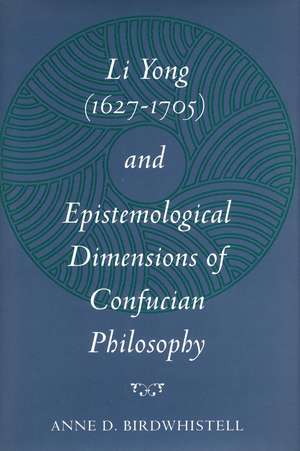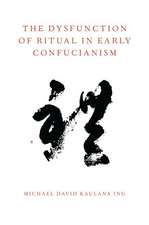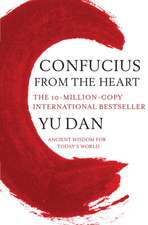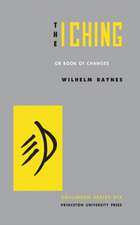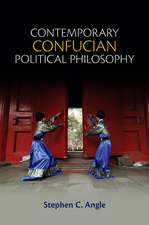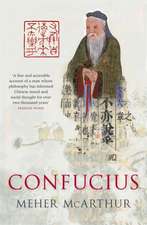Li Yong (1627-1705) and Epistemological Dimensions of Confucian Philosophy
Autor Anne Birdwhistellen Limba Engleză Hardback – 31 ian 1996
This study offers a methodological approach for comparative philosophy on the level of the philosophical system, examines Confucian philosophy as a philosophical system, with emphasis on its epistemological dimensions, and uses the thought of a particular thinker as an example of how the Confucian tradition was appropriated by individual thinkers.
Preț: 450.69 lei
Preț vechi: 556.41 lei
-19% Nou
Puncte Express: 676
Preț estimativ în valută:
86.24€ • 90.27$ • 71.78£
86.24€ • 90.27$ • 71.78£
Carte tipărită la comandă
Livrare economică 31 martie-14 aprilie
Preluare comenzi: 021 569.72.76
Specificații
ISBN-13: 9780804726054
ISBN-10: 0804726051
Pagini: 300
Dimensiuni: 162 x 235 x 22 mm
Greutate: 0.6 kg
Ediția:1
Editura: Stanford University Press
Colecția Stanford University Press
ISBN-10: 0804726051
Pagini: 300
Dimensiuni: 162 x 235 x 22 mm
Greutate: 0.6 kg
Ediția:1
Editura: Stanford University Press
Colecția Stanford University Press
Recenzii
“Presenting new material from a stimulating perspective, Birdwhistell’s work is both meticulous and fascinating. She comes to her material with a keen philosophic eye. Not only does she provide us with excellent sinological scholarship, but she puts the scholarship in the context of the development of Chinese philosophy, which she links to broader ecumenical and global philosophic issues. This work is therefore important to any philosopher interested in the development of world philosophy.”—John Berthong, Boston University
Textul de pe ultima copertă
“Presenting new material from a stimulating perspective, Birdwhistell’s work is both meticulous and fascinating. She comes to her material with a keen philosophic eye. Not only does she provide us with excellent sinological scholarship, but she puts the scholarship in the context of the development of Chinese philosophy, which she links to broader ecumenical and global philosophic issues. This work is therefore important to any philosopher interested in the development of world philosophy.”—John Berthong, Boston University
